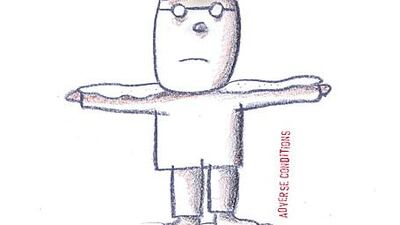The grind of the 21st century throws up obstacles at every turn. Nikolaus Oliver is on hand with advice to guide you through. This week: coping with those things sent to try us. Adverse conditions. If asked to sum up one of the essential challenges of modern life, these two words express it in a nutshell. But I may be casting my net a little too wide. The adverse conditions I am referring to are those things, usually natural phenomena, that make life so difficult.
Take snow. In Europe recently there's been a bit of it, perhaps a bit more than in years just gone. Everything came to a halt. In the UK this is quite normal - it happens every year. Some years ago, the then British Rail delighted its customers by announcing that no trains would be running for several days after a 2cm snowfall, because it was, in its immortal words, "the wrong kind of snow". Had it been expecting cuddly warm-pink sparkling snow instead of the nasty cold-white kind that came down instead?
The French take a different approach. The air traffic controllers of Gaul met the snowy challenge by immediately going on strike - their standard response to any unexpected (or even expected) development. But other regions are not immune. In the UAE, the normal winter rains produce the normal winter chaos. Some adverse conditions are indeed so disadvantageous that a breakdown of normal service is inevitable and understandable. The Haiti earthquake is just the latest of these kinds of catastrophes - earthquakes, tsunamis, hurricanes - which have abounded in the new century to such a degree that they almost seem to be a hallmark of it.
For the rest, it's all about being prepared. In Yakutsk, in the Russian Republic of Sakha, where the average winter temperature is minus 45°C, everything runs like clockwork. Flights are never cancelled and even the local markets remain open for business. What societies can't handle is the unexpected. And here is a paradox of modern life: economically and technologically, change and innovation are the norm. Yet progress appears to be making us less, rather than more, adaptable to unexpected circumstances. We live more and more on a knife-edge where everything works well if conditions are stable. But woe betide us if the temperature dips (or soars), if it rains or snows.
It's also paradoxical that as we work to prepare for long-term changes such as global warming, we are caught out by things like a change in the weather. Unfashionable as the idea is, perhaps some short-termism would help us cope better with at least some of the modern world's adverse conditions.

